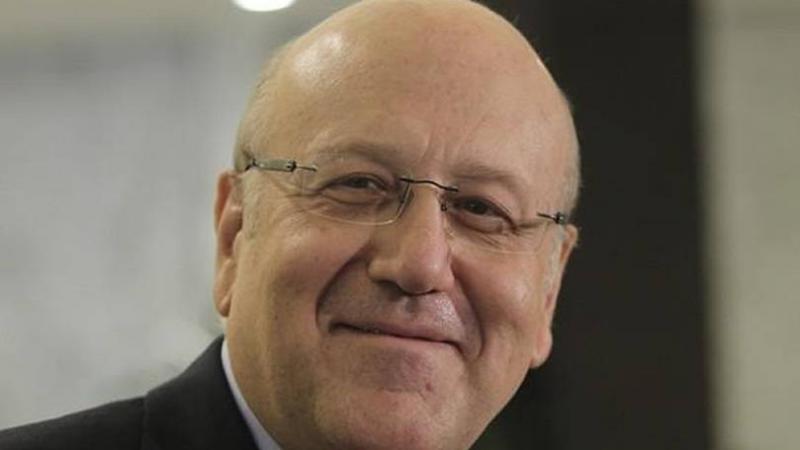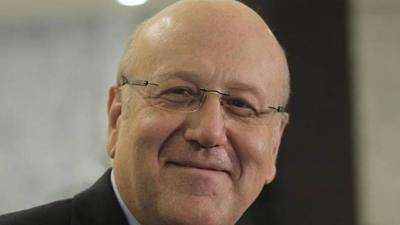Lebanon is entering a new political phase with the completion of the parliamentary elections this Sunday, relating to the reconfiguration of power and preparing the ground for the election of a new president to succeed Michel Aoun. This is to prevent the country from entering a presidential vacuum, even for a limited period, especially since Aoun will leave the presidential palace immediately after the end of his term. His political team has been informed of this by European Union ambassadors in Lebanon and others who possess political influence and represent the permanent member states of the UN Security Council.
However, Aoun's departure from the Baabda Palace raises the question of what comes next. Will the transitional phase between the election of a new parliament and the set date for choosing the new president witness surprises that hinder the formation of a new government? Would this lead to an extension of Najib Mikati's government, which would become a caretaker government starting this Monday, limited to managing state affairs?
It is premature to rush stages before confirming the balance of power in the elected parliament. It remains to be seen whether it will extend the current parliament while integrating some reformist faces, especially in the absence of Sunni leadership following the decision of Future Movement leader Saad Hariri not to run in the elections. This is coupled with the abstention of former presidents Mikati, Fouad Siniora, and Tamam Salam from participating, which risks depriving the new parliament of the necessary balance that would lead to distributing elected Sunni deputies among several parliamentary blocs, both existing and those representing independent members outside the resistance axis led by Hezbollah. Additionally, the absence of Sunni references in the electoral battle will create a gap in parliamentary representation that exceeds the Sunni share, potentially undermining its role as one of the major components upon which the country stands, which may disturb the rules of political games given that it is the weakest link in the equation produced by the Taif Agreement.
It is a miscalculation to think that analyzing the governmental equation will only stem from the political makeup that the new parliament will yield. Relying solely on it without any adjustments means that forming the government will consider the necessity of representing the main parliamentary blocs, prioritizing a political government similar to what Hezbollah's Secretary-General Hassan Nasrallah demanded during his electoral appearances, urging his supporters to heavily participate in the elections to secure a majority for the resistance axis.
Nasrallah's call for a political government tailored to the parliamentary majority allied with the resistance axis faces challenges, especially if the opposition forces in the new parliament are unwilling to participate. Some speculate that a return to forming a government akin to that led by Hassan Diab is unlikely, primarily because such a government will mean prolonging the crisis and hinder its capability to seek international assistance to stop the collapse. Furthermore, this option would allow the opposition to view it as a "Hezbollah government."
Avoiding the formation of such a government is crucial to prevent political confrontation with the international community, undermining efforts made by Mikati to reintegrate Lebanon into the international focus, requesting that he head the upcoming government, provided it does not include the current specifications, which comprised ministers who failed in managing their ministries and became a burden obstructing the promises made by Mikati's government.
The question remains: Will Mikati be tasked with forming the new government again? Or will the alternative be to transition the current government into a caretaker status? Although the country cannot afford extending it, as it lacks the necessary conditions to continue negotiations with the International Monetary Fund, particularly since its powers are very limited as long as it cannot make decisions essential for proceeding with the country's rescue.
Will Mikati return at the helm of a fully qualified government? Or will he refrain from heading it on others' terms if they aim to pressure him with another candidate for the position?
It can be said that assigning Mikati as prime minister could correct the imbalance resulting from the absence of Sunni references in parliament. However, he does not wish to form it at any cost unless everyone acknowledges, as he tells "Al-Sharq Al-Awsat," that Lebanon is currently undergoing a difficult phase and it is no longer permissible to enter into political tug-of-wars that would cost the country. He adds that the formation of a government based on specified standards must drive efforts to pull the country from its crisis; otherwise, they should look for another candidate, not as an evasion from responsibility but to ensure the activation of government work to stop the collapse.
However, the discussion on the necessity of forming a new government prompts inquiry into the president's position and his willingness to respond to forming a government with specifications different from those that led to the failure of the French initiative when Paris succumbed to the status quo and agreed to abandon the specifications defined by President Emmanuel Macron during his meeting with parliamentary bloc leaders at the Pine Palace, based on forming a government of specialists and independents unconnected to parties that Hariri failed to establish.
Will Aoun take the initiative to facilitate the formation of a government that reflects the French initiative in its new version following Macron's reelection for a second term, which should have liberated him from yielding to the pressure of the existing reality that forced him to accelerate the formation of Mikati's government? And where does Gibran Bassil, the leader of the Free Patriotic Movement, stand, who alone holds the decision to accept or reject after Aoun allowed him to freely choose to become effectively a shadow or surrogate president, so to speak?




